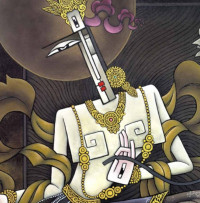Culture & Lifestyle
Homecoming, for some, is an utterly unspectacular process
For many people, ‘coming home’ is not a financial, political or social option. And for others, especially those with financial security, it is fundamentally of choice—which makes it utterly unspectacular.
Leena Dahal
Recently, discussions about Nepalis ‘returning home’ from abroad have riddled my newsfeed. Implicit in some of these narratives is a (dangerous) underlying assumption: a desperate and broken Nepal has been hobbling along since the day you left, faltering in your absence. In some of these declarations—many of which suffer from clear saviour-guilt complexes—it is assumed that Nepal, a country far beyond your few family members, has remained perched by the window, spending decades contemplating your arrival.
Enter Priscilla Takondwa. In her 2017 piece, ‘Dear African Abroad: Home is NOT waiting for you’, she profoundly captures the importance of returning home with heads bowed, ears ready to listen, and shoes off at the door. Reflecting on her own ‘coming home’ story, she writes, “You realise that all those nights spent writing essays about this distant home in defense of it can essentialise home, romanticise it, trivialise it. Home can become this ill-spoken-of place that you constantly defend, so that in a sick and twisted way, you begin to breed, in yourself, a sort of savior mentality…But who in the world are you?”
In Priscilla’s unapologetic reflection, I confronted mirages of myself. As a wide-eyed student on the brink of earning an undergraduate degree at Elon University, North Carolina, I had spent a crux of my educational journey vehemently declaring how necessary it was for me to return home.
Always quick to defend the country in (surface-level and superficial) classroom interjections. Always ready to write papers about institutional discrimination in my home country (without acknowledging how my own caste background has contributed to and benefited from the system). Always ready to point out instances of ‘cultural appropriation’ (like that time I cried about a white girl with a bindi on the side of her forehead) without reflecting on how, as a child, I was always quick to parade for pictures in borrowed Newari traditional dresses in the name of ‘diversity’.
Drenched in hypocrisy, I constantly overlooked a glaring underlying fact about my ‘social justice warrior’ proclivities. As Priscilla reminds us, “it is easy to assume the role of expert” and declare with fervor that you will return home—when you are far removed from the “implications of any of the political, economic, and social happenings that have [you] fired up”.
This is not to say that everyone’s trajectory home follows the same linearity. In fact—contrary to the narratives peddled in some of these ‘coming home’ conversations—it is insidious to think that the act is universal and accessible for everyone. For many people, ‘coming home’ is not a financial, political or social option. And for others, especially those with financial security, it is fundamentally of choice—which makes it utterly unspectacular.
The vast majority of people writing these narratives (including myself) are those who discuss life in mostly Western, affluent countries. For many of the millions of Nepali labour migrants, whose stories are too often relegated to the peripheries in discussions about what it means to live abroad, coming home can be a product of unimaginable trauma, a denied right, and a grim reality beyond their own discretion. For undocumented Nepali-identifying youths in India, their return home is marked by uncertainty and discrimination. By conflating these diasporic experiences, we run the risk of universalising what it means to come home. The ‘Nepali diaspora’ isn’t a static entity with unchanging stories and trajectories.
The overt romanticisation of ‘coming home’ is dangerous because it demands laudation. Those under the impression that they are somehow better for having left and now somehow more spectacular for forgoing their high-paying prospects abroad to return home (because you can afford the option) are, unfortunately, severely misguided. While you were away, Nepal has been just fine. And before you interject any higher-than-thou inklings on experts—those who have remained to work tirelessly for the country’s development—stop, at first, to listen.
A couple months ago, I returned to Nepal after living abroad for essentially all my life. A byproduct of my physical return has been unflinching (and sometimes painfully-induced) humility. And in this process of re-learning and un-learning, my glaring hypocrisies continually re-emerge. Retorting to habitual tendencies, I too often confine myself within a circle of other returnee friends. A safer and easier option. I regularly frequent Kathmandu corners that overtly cater to pallets and wallets that do not, in the slightest, represent Nepal. And yet, despite barely engaging with this ‘home’, I too often put its culture up for public consumption when it suits me by filling my Instagram with cute and quirky temple pictures because #blessed. By encircling myself in comfort and familiarity, I continually fail to remember that despite geometric conventions, circles are very much double-edged: As much as they encompass, they also exclude and isolate.
The truth is, I haven’t really returned home. Until I confront my underlying assumptions and habitual tendencies, coming home, at least for me, will continue to be a perpetual, unspectacular process.
Dahal tweets @LeenaDahal.




 18.12°C Kathmandu
18.12°C Kathmandu















